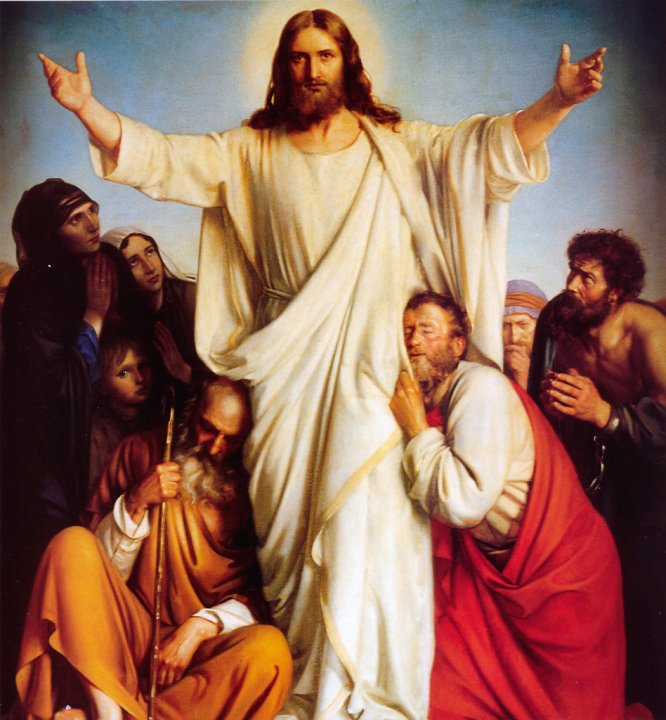Sacred Heart of Jesus- Feast
I Reading: Deuteronomy 7:6-11II Reading: 1 John 4:7-16
Gospel: Matthew 11:25-30
Before the beginning of time, before creation, God existed all alone. The love of God was the only love there was then. The love of God is the only love there is now. And the love of God is the only love there will ever be. We are not creators we are only receivers and transmitters of the love of God. And we can transmit only as much as we receive. To tell us of His love, God sent his only Son. “The Word was made flesh and dwelt among us.” Jesus is the greatest expression of the love of God for us and the greatest expression of the human response to that love.
Jesus was divine, the Son of God. He was also human, the son of Mary. He spoke with divine authority but he spoke in human language. He spoke in the simple language of ordinary people of his day about the things they were most familiar with: the birds of the air, the lilies of the field, the sower and the seed, the vine and the branches. When he wanted to tell his apostles how important they were he said that they were the “light of the world” and the “salt of the earth.” And when he wanted to tell us of God’s love for us he used the heart, the human symbol of love. He told us that we should learn of him that he was meek and humble of heart and we would find rest for our souls.
The contemporaries of Jesus knew this meek and humble heart of Jesus and they knew that it beat with unconditional love for them. Rough, simple fishermen leave their boats and nets to follow him. Learned doctors sit at his feet to hear his wisdom. A tax collector leaves his money table to become his disciple. Multitudes follow him for days, so captivated that they forget to provide food to eat. The sick fight their way through the crowds just to touch the hem of his garment. And they all found peace and rest for their souls.
Never before has the unconditional love of the Sacred Heart been as relevant as it is today. We live in the information-centered society of the World Wide Web and the Internet. There is a lust for knowledge. This “info mania” has produced an unbelievable amount of information and data all of which can be stored on a small silicon chip and called forth at will. We can no longer see the forest for the trees. The sheer volume of all of this information has made this the age of the digest, the logo and the symbol.
Theologians are saying that amid the chaos it is necessary to capture the transcendent in a symbol that is relevant for you; in other words to capture the unconditional love of God in a symbol that is relevant for me. Jesus has already done this for us in his Sacred Heart. “Learn of me that I am meek and humble of heart and you will find rest for your soul.”
The Sacred Heart of Jesus is the symbol of the fidelity of the love of God. It reminds us that God loves us unconditionally with a love we cannot earn or ever be worthy of. And he loves us for ourselves, not as we should be, or possibly could be, but as we are with all of the physical warts, psychological quirks and spiritual infidelities.
The Sacred Heart of Jesus is most relevant today because not only is this the information-centered society, but it is also an age of anxiety, fear, insecurity and despair. Every year more than a million and a half Americans suffer heart attacks. Heart failure is the leading cause of death in America today. Heart failure is also the most avoidable cause of death because long before the patient is rushed to the emergency room trouble has been going on in the heart: in the fearful heart, the anxious heart, the discouraged heart, the lonely heart, the rejected heart, the angry heart and the sinful heart. The root cause of all of this heart trouble is the failure to know and trust the meek and humble Sacred Heart of Jesus.
“Jesus, meek
and humble of heart make our hearts like unto Thine.”

No comments:
Post a Comment